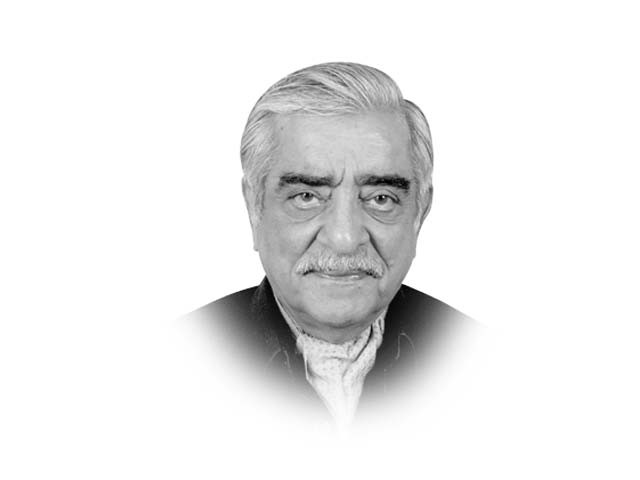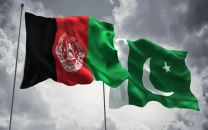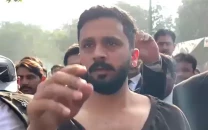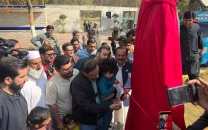Lessons from the Peshawar tragedy
Let us be clear as we wage the required campaign against extremism, there will be a price to be paid

Pakistan is a traumatised nation. Civil society’s candlelight vigils, special prayers and an outpouring of sympathy for the victims and their families and a display of unity in the face of adversity could not entirely disguise the fears and apprehensions of parents who now fear that any school in any city can become the target of the next attack. An all-pervading sense of insecurity, engendered by the record of terrorist attacks that have become almost the norm in Pakistan and reinforced by the Peshawar carnage has brought the people of Pakistan, too, to the limits of their endurance.
Understandably, our first reaction has been to locate and eliminate those who instigated the attacks and their abettors. General Raheel Sharif’s visit to Kabul with evidence in hand that the handlers of the Peshawar attackers were located in Afghanistan, elicited promises from President Ashraf Ghani that the use of Afghan territory for attacks against Pakistan would not be permitted and to a renewal of Isaf-led drone attacks on TTP sanctuaries in Afghanistan which, by press accounts, have eliminated some of the TTP leaders.
What will be needed to ensure that this becomes a sustained campaign against the sanctuaries that the TTP have created, probably with the assistance not only of Afghan intelligence but also of the ‘timber Mafia’ in Kunar?
First, the new phase in Pak-Afghan relations must not be jeopardised by going for ‘hot pursuit’ to eliminate TTP sanctuaries in Afghanistan. Instead, concrete anti-smuggling actions on our side of the border must convince the timber mafia in Kunar that it would face economic ruin if TTP sanctuaries are not eliminated. If this needs drastic action against vested interests in Pakistan that aid and abet this smuggling, then such action must be taken.
Second, one can assume that President Ghani, while promising to combat terrorism jointly, asked for and secured pledges of Pakistani assistance for the commencement or resumption of talks with the Afghan Taliban. Afghan press reports suggest that President Ghani has been using his own channels to get the Taliban to resume talks in Qatar. Perhaps, General Sharif was briefed on these efforts and told that if Pakistan wanted the elimination of TTP sanctuaries on Afghan soil, then Afghanistan in turn wanted the elimination of the Afghan Taliban sanctuaries or at least pressure on the Afghan Taliban to negotiate the terms of reconciliation with President Ghani’s emissaries. This we must do in all sincerity, not only because of the TTP threat but because there is nothing more dangerous for Pakistan than the almost certain onset of civil war in Afghanistan if reconciliation does not come about.
Internally, it must be seen that just as the video of the flogging of a girl created the outrage that generated overwhelming support for the Swat operation, the Peshawar tragedy, a calamity of far greater magnitude, has created the ambience in which civil society is prepared to demand and support actions to curb the terrorist and extremist elements in our midst. A distraught army officer in Peshawar has been quoted by The Economist as saying after the Peshawar tragedy, “I am not sure if Pakistan was created in the name of religion, but it is surely being destroyed in the name of religion.” He has given voice to the sentiment that provided the impetus for the demonstration outside the Lal Masjid and the filing of the FIR against Maulana Aziz.
So what do we need to do? Prime Minister Nawaz Sharif’s statement removing the distinction between the good and the bad Taliban will reinforce the stated objective of Operation Zarb-e-Azb to eliminate terrorists of all hues and set the future tone of the military campaign, but it must be followed by other concrete action.
First, there is much to be said for the case against the lifting of the moratorium on the death penalty but given that we have moved beyond it, the execution of the perpetrator of the GHQ attack and the perpetrator of the attempted assassination of President Musharraf must be followed by the execution of Mumtaz Qadri who successfully assassinated the late Punjab governor Salmaan Taseer.
Second, if Maulana Aziz is still on the government payroll, he must be dismissed and the possession of Lal Masjid taken over by the Capital Development Authority. If this requires an appeal to the Supreme Court, the government should file such an appeal immediately just as it has decided to file an appeal against the grant of bail to Zakiur Rehman Lakhvi. Third, an immediate campaign should be launched to identify mosques and seminaries that have been built illegally throughout the country, with those responsible for the qabza being prosecuted under the law of the land. Fourth, the threats of the leaders of the Wafaq-al-Madaris notwithstanding, there must now be a concerted effort to ensure that none of these madrassas remain the source of the extremist ideologies that have poisoned our polity and some of which located in Balochistan have provided the wherewithal for the attacks on Shia pilgrims going to Iran.
According to the State Department Terrorism Report, Pakistan was, after Iraq, the country that suffered the most terrorist attacks in 2013 (1,920 as against 2,495 in Iraq and 1,144 in Afghanistan). These attacks represented a 36 per cent increase over the attacks in 2012. Let us be clear as we wage the required campaign, there will be a price to be paid. The price we pay today will, however, be far lower than the one we will pay later when the monster will have grown further. Mistakes will be made. Innocent people will suffer but they are also suffering now as the plight of the IDPs from the tribal areas can testify; but there is no real alternative if we are to survive as the nation that our forefathers had struggled for.
This is the national interest. Our leadership can be resolute pursuing it because the civil society, aroused by Peshawar, will provide the needed public support.
Published in The Express Tribune, December 22nd, 2014.
Like Opinion & Editorial on Facebook, follow @ETOpEd on Twitter to receive all updates on all our daily pieces.















COMMENTS
Comments are moderated and generally will be posted if they are on-topic and not abusive.
For more information, please see our Comments FAQ